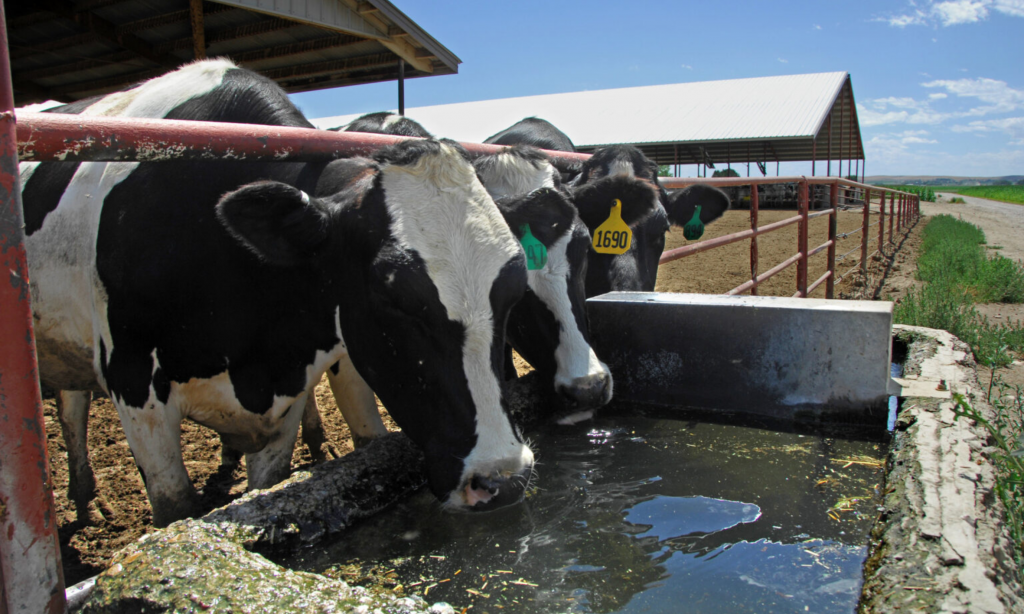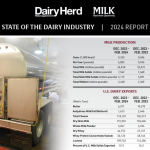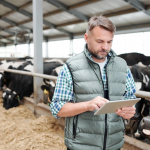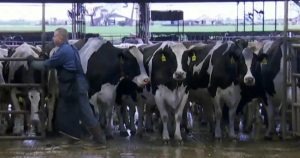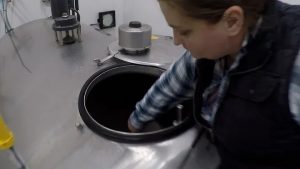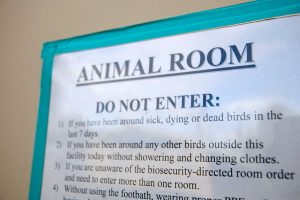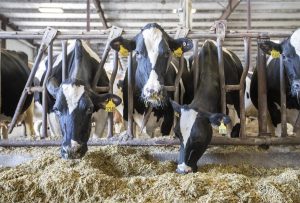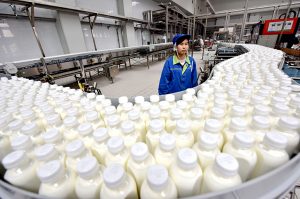
The U.S. Department of Agriculture announced Tuesday that four states will launch voluntary pilot programs in the days ahead to test bulk milk tanks on dairy farms for bird flu — a move that’s aimed at making it easier for farmers to ship herds across state lines and for public health officials to track spread of the virus.
Kansas, Nebraska, New Mexico and Texas will be in the first round of voluntary participation, with other states likely to follow, officials said on a call with reporters.
“This list of participating states is just the beginning,” said Eric Deeble, the acting senior advisor for H5N1 response at USDA.
“We are in close conversation with about a dozen other states who are very interested in participating as well,” Deeble said. “But it was important for us to get these four states going so that other states could watch how the program works and gain additional confidence.”
The launch of the pilot program, he said, is “an important step forward” for efforts to reduce the spread of bird flu, also known as H5N1, as well as for expanding understanding of the virus.
Farmers who voluntarily enter the program will be able to move their herds across state lines without additional testing after bulk milk tanks or similar representative samples test negative for H5N1 for three consecutive weeks.
“Producers must also comply with continued regular weekly monitoring and testing of their herd for H5N1, but that process can happen with very little effort on the part of the producer, using routine bulk milk samples,” Deeble said.
126 cases of bird flu confirmed
The announcement is part of the federal government’s ongoing response to the months-long outbreak within dairy cattle and years-long challenges faced by the country’s poultry industry.
The USDA has confirmed 126 cases of bird flu in dairy cattle herds in a dozen states as of June 21, including Colorado, Idaho, Iowa, Kansas, Michigan, Minnesota, New Mexico, North Carolina, Ohio, South Dakota, Texas and Wyoming.
Idaho has the most dairy herds affected, with a total of 27. That’s followed by Michigan with 25 herds and Texas with 21 herds. Colorado has reported 18 affected herds, while each of the other states has fewer than 10 herds testing positive for bird flu, according to the USDA data.
Three dairy farmworkers have contracted avian flu this year, though all cases were mild.
The U.S. Centers for Disease Control and Prevention reinforced during the call Tuesday that the risk to the general public remains low, though there is an increased risk of contracting the virus for workers, both on dairy farms and poultry farms.
FDA to do more testing
The U.S. Food and Drug Administration also announced Tuesday it’s broadening its testing for H5N1 to include about 155 additional samples of dairy products, including aged raw milk cheese, cream cheese, butter and ice cream.
The FDA has repeatedly tested pasteurized milk from store shelves in the months since the first dairy cattle herd tested positive for H5N1 and has continuously emphasized the nation’s milk supply remains safe.
“This retail sampling effort is intended to address remaining geographic and product gaps from the initial sampling of the commercial milk supply that FDA conducted between April and May of this year,” said Don Prater, acting director of the Center for Food Safety and Applied Nutrition at the FDA.
It will likely take several weeks before those results are completed and made public, he said.
That second round of expanded food safety testing will not include raw milk, since it is not approved for interstate commerce, he said.
But the FDA has sent a letter to its local, state and tribal partners, cautioning those that do allow the sale of raw milk to talk with consumers about the additional risks, given that H5N1 is spreading through dairy herds in several parts of the country.
Prater, speaking on the call Tuesday, noted the FDA continues to strongly advise against drinking raw milk.
“We also recommend that the industry does not manufacture or sell raw milk or raw milk products, including raw milk cheese made with milk from cows showing symptoms of illness, including those infected with the avian influenza viruses or exposed to those infected with avian influenza viruses.”
